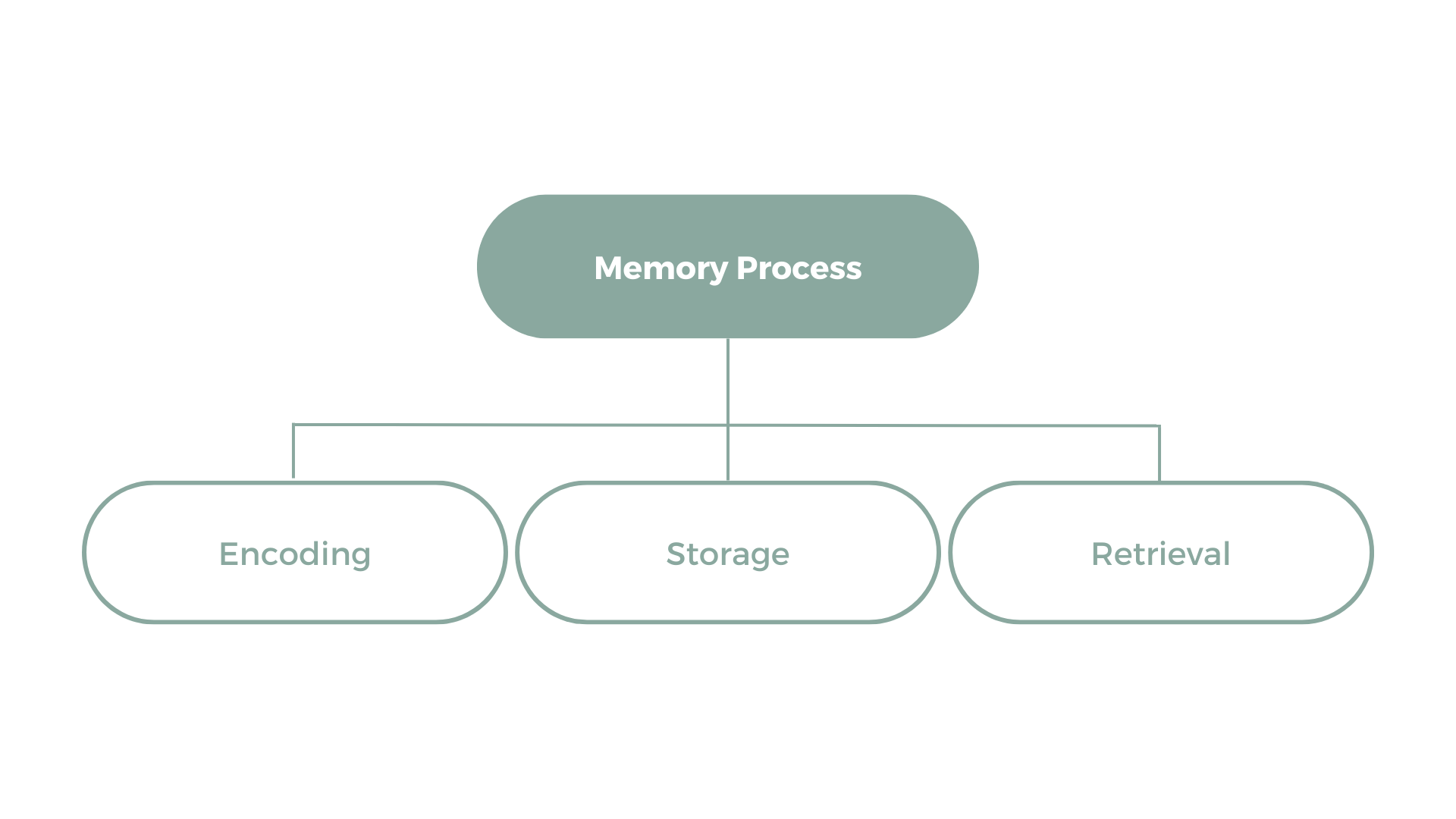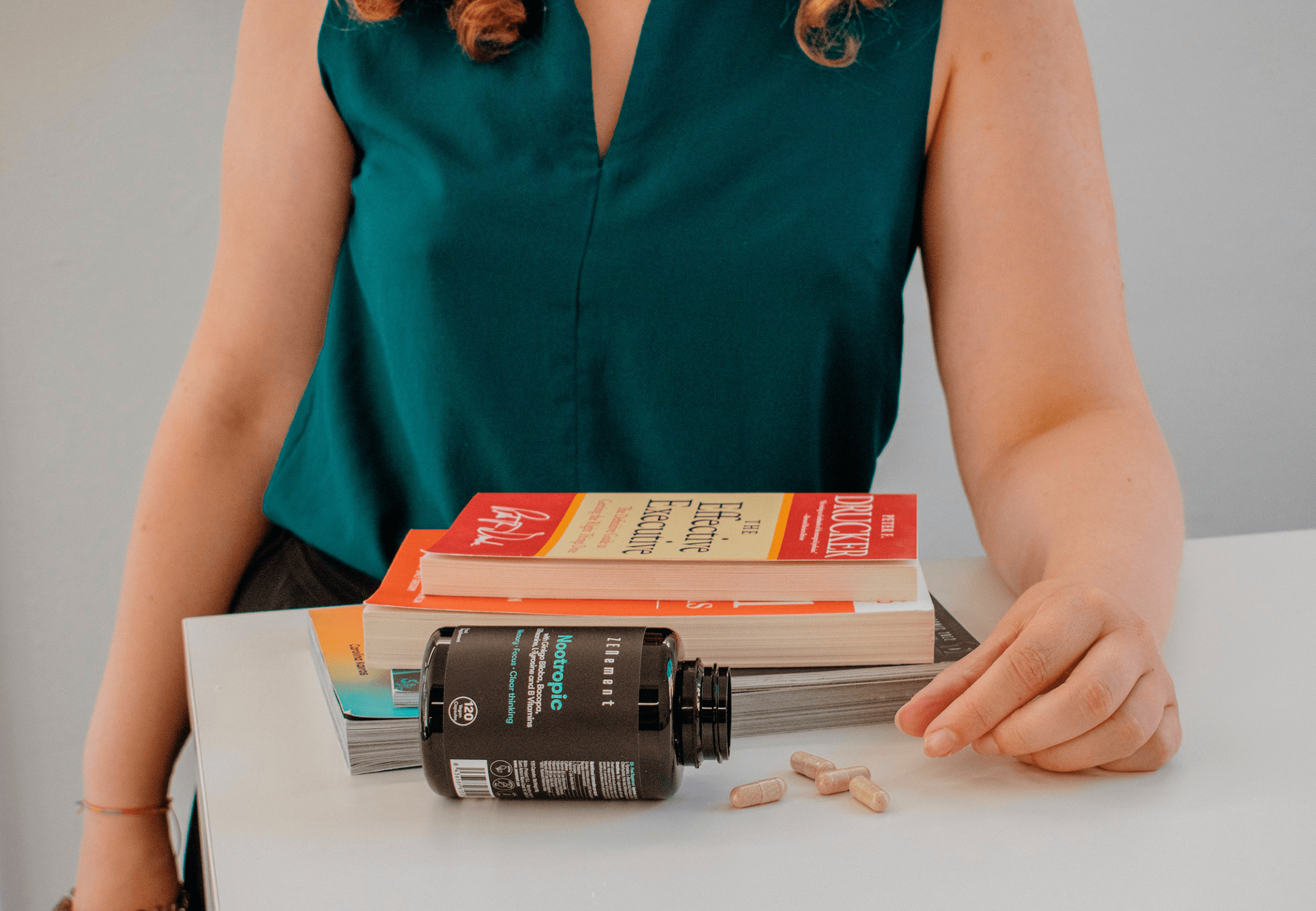Our brain's ability to encode, store, and retrieve information is called memory. But do you know how it works? Human memory is very complex. One reason is that it is associated with several areas and segments of the brain: the hippocampus (which is involved in the formation of memories), the prefrontal cortex (which is involved in working memory), and the temporal lobe (which is involved in long-term memory). Memory can be divided into 3 main stages: encoding, storage, and retrieval.

1. Encoding: During this stage, we process information from the outside world and transform it into a format that the brain can use. Encoding can be semantic (related to the meaning of the information), visual (related to images), and acoustic (related to sounds). This is the first step in creating a memory.
2. Storage: Once the information has been encoded, it is stored in the brain for later use. There are several types of storage memory, including sensory memory (which stores sensory information for a short period of time), short-term memory (or working memory, which can store a small amount of information for a few minutes), and long-term memory (which can store a large amount of information for a long period of time, from months to a lifetime).
3. Retrieval: The last stage of the memory process is retrieval, during which stored information is retrieved in order to be used. This stage can be influenced by several factors, including the type of information, the context in which the information was learned, and previous experiences and knowledge.
In this blog post, we are going to give you some tips to improve your memory and concentration: because without concentration there is no memory. We are also going to recommend certain food supplements that can help you improve your memory and concentration.
Diet is a key factor
Our brains need nutrients and vitamins in order to function, which is why it is so important to take care of the food we eat. A balanced diet, including fruit, vegetables, protein, and whole grains that provide fibre, will provide us with the essential nutrients we need for optimal brain function.
Foods rich in antioxidants will help us fight oxidative stress, which can damage our brains. Similarly, foods rich in omega-3s, such as salmon, walnuts, and flaxseeds, will reduce inflammation and promote the regeneration of brain cells.
For example, an ideal lunch menu to nourish your brain might consist of a first course of spaghetti Napolitana, followed by a second course of grilled salmon with asparagus accompanied by two slices of whole-grain bread, and a piece of seasonal fruit.
Commit to regular exercise
A physically active lifestyle benefits both body and mind. Regular cardiovascular exercise, such as cycling, jogging, or even a brisk 30-minute walk around your neighbourhood, promotes blood flow and oxygen delivery to the brain, thereby improving cognitive function, concentration, and memory.
Keep your mind active
Regular mental stimulation helps keep your brain active. You can sharpen your memory while entertaining yourself by doing puzzles, Sudoku, crosswords, reading, or learning new skills such as playing a musical instrument or learning a new language. All of these activities can strengthen your neural connections and help delay memory loss associated with ageing.
Prioritise restorative sleep
Sleep is vital for memory retention. During sleep, we transform short-term memories into long-term storage and our brain is "cleansed" from free radicals and inflammatory mediators thanks to melatonin. The recommended time for restful sleep is 7–9 hours each night. A regular sleep schedule, a dark and cool environment, and limiting screen time before going to bed can improve sleep quality.
Control your stress levels
Chronic stress can impair memory and cognitive function by promoting inflammation and oxidative stress in our brains. Developing stress management strategies, such as daily meditation, yoga sessions, or even simple deep breathing exercises during short breaks from work, can support mental well-being and improve memory function.
Hydrate yourself properly
Adequate hydration is critical for all bodily functions, including brain function. Dehydration can affect cognitive skills, including attention, memory, and motor coordination. Drink water when your body asks for it, but increase your intake if you work out or live in a hot climate.
Avoid substances that are toxic to your brain
There are everyday products that can be harmful to your memory and brain function.
Excessive and continuous alcohol consumption can lead to memory loss and long-term cognitive problems, as it can damage the hippocampus. In addition, smoking can reduce blood flow to your brain, which can deteriorate cognitive abilities and increase the risk of neurodegenerative diseases.
Long-term use of recreational drugs affects brain function, compromising memory, attention, and decision-making. Moreover, chemicals such as pesticides can have neurotoxic effects when we are heavily exposed to them.
Finally, constant exposure to air pollution, especially fine particulate matter, has been linked to decreased cognitive function and an increased risk of dementia.
Use supplements to improve your memory
In addition to these lifestyle tips, food supplements can be an additional support to improve concentration, memory, and keeping your brain healthy. Here are some of our supplements that can help you do just that:
|
Supplement |
Features |
Associated cognitive benefits |
|
|
Blend including Ginkgo Biloba, Bacopa Monnieri, and green tea. |
Improves cerebral blood flow, accelerates information processing, and protects against oxidative stress. |
|
|
With wild fish oil with 2000 mg omega-3 (700 mg EPA, 500 mg DHA) and vitamin E. |
Supports brain health by reducing inflammation and promoting brain cell growth and development. |
|
|
They contain essential B vitamins, as well as choline, inositol, vitamin C, and vitamin E. |
They support neurotransmitter production, improving communication between neurons. |
|
|
Contains curcumin, an active ingredient with anti-inflammatory and antioxidant properties. |
It can cross the blood-brain barrier and act directly on the brain, exerting neuroprotective effects. |
|
|
Highly concentrated, having 2375 mg of Ginseng per dose. |
Helps reduce oxidative stress in the brain and promote the growth and survival of new brain cells. |
|
Lion's Mane |
Highly dosed extract (6:1), about 3000 mg of dried organic Lion's Mane. |
It promotes the production of neurotrophic factors, supporting the survival and function of neurons. |
By implementing these practical tips and including some of our recommended supplements to improve your memory and concentration, you can unleash your brain's full potential, paving the way to improved cognitive health for a healthier, more active brain.


